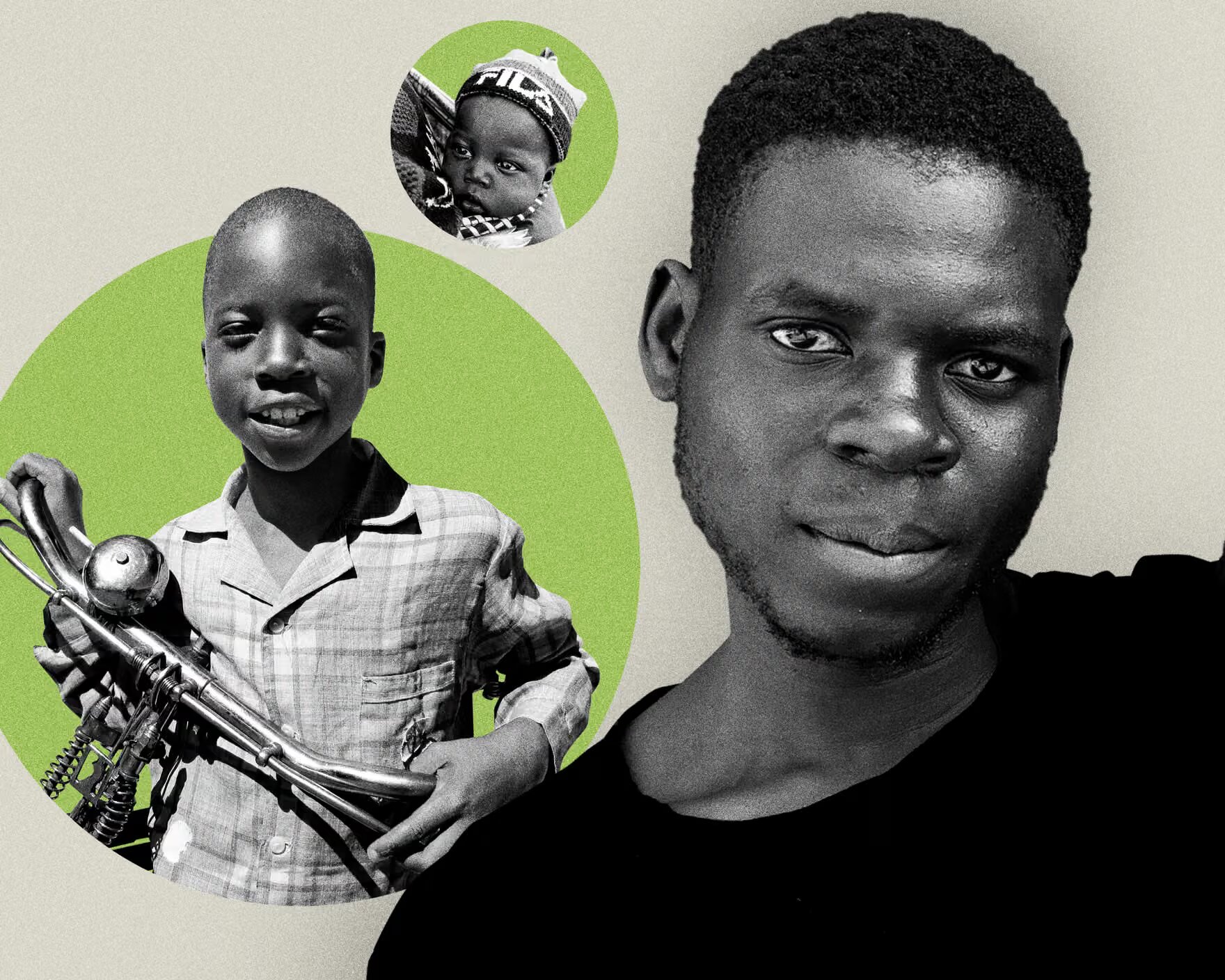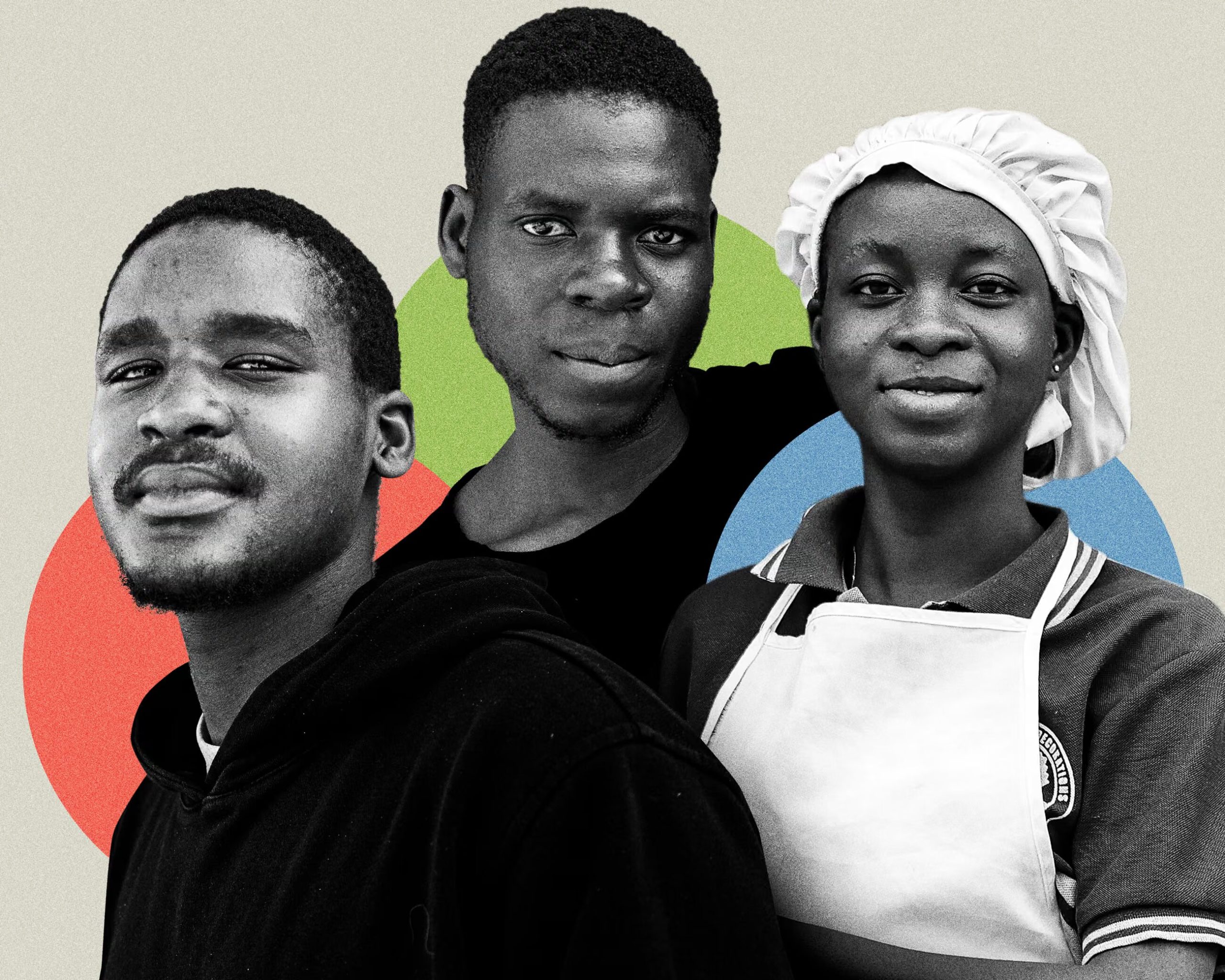
In 2005, the Guardian documented the births of 10 babies as a way to tell the story of millions across the continent. We caught up with three of them, finding hardship – and hope
Twenty years ago, the Guardian featured 10 newborn babies in countries across Africa, describing their births, their families and the environments they had been born into. We followed these babies at five-year intervals up to 2015 – the date the United Nations had set for achieving the millennium development goals – as a way to tell stories that might be those of millions of others across the continent as they worked to provide the best chance for their children.
Although some progress was made, the millennium development goals were not met by 2015 and that year UN member states adopted a new approach – the 2030 Agenda for Sustainable Development with 17 goals for ending poverty and inequality, while also tackling the climate crisis. With five years to go, only 18% of those goals are on track to be met.
This year, the Guardian set out to track down those children born in 2005 to see how their lives were turning out. It took months of work and many proved untraceable; but we caught up with three – in Malawi, Ghana and South Africa. These are their stories.

Home for Innocent Smoke today is one room that he shares with his wife and baby in Mponela, on the outskirts of the Malawian capital, Lilongwe. The small agricultural town lies about 36 miles from where he was born in 2005.
With brick walls, a cement floor and a roof of corrugated iron, it is far more advanced than the straw-thatched hut where he grew up. He pays 15,000 Malawian kwacha (£6.50) a month in rent for his home, which has no running water or electricity.
In 2022, Innocent married Edess Gwalanya, 22, who grew up in a village two miles from where he was living with his parents. They met when Gwalanya was on her way to church; he asked her out, and they married less than a year later.
The couple’s first child was born in January last year but he died of heart problems a day later. Malawi has a relatively high infant mortality rate, with an estimated 29 babies in 1,000 dying before their first birthday.
“We were devastated as a family because we had accepted his arrival as a gift from God,” says Innocent. “But we were uplifted by the realisation that it was God who gave us the child and it was God who took him away. We are now happy that God gave us another child.”
I am scared about my job security … I am married and have a child so losing a job is a terrifying prospect
Their second son, who is happy babbling away in the background, was born in January and is named Israel, after Innocent’s late grandfather.
Innocent, who has a certificate in motorcycle mechanics, has done a few jobs, including working in a shoe factory, as a cleaner at a school, a security guard at a hospital and on a farm. “I acquired the vocational skills because I could afford the fees for the training, but I have been struggling to raise resources to open my garage to repair motorcycles,” he says.
He is now working for a Chinese construction company that is renovating the M1 road, a key route that connects landlocked Malawi to the Tanzanian port of Dar es Salaam. The job involves testing soil and cement on the newly laid asphalt.
Innocent’s dream is to build a house for his family, but he says: “I am scared about my job security and possible unemployment. I am married and have a child, so losing a job is a terrifying prospect. The cost of living, particularly food, is very high, so one needs a job to survive.”
Unemployment among young people is high, with more than half of those aged 18-35 without jobs and looking for work. More than half of young people have considered leaving the country, according to the pan-African research network Afrobarometer.
The economy has stagnated for a long time, creating fewer jobs. For years, the economy depended on tobacco, but global anti-smoking campaigns have put the country’s biggest export under severe pressure.
Candidates should have the right policies to fight poverty and make life in villages better
The majority of Malawians are born and die in poverty. It is a reality that Innocent, a voter in last month’s presidential elections, is hoping can still be reversed.
“Candidates for leadership should have the right policies to fight poverty and make the life of people in the villages better. They cannot employ everyone but should make sure they create enough companies that will employ enough people so that we can reduce poverty,” he says.
“I voted for my preferred candidate,” Innocent says. “Someone who can change my fortunes as well.”
